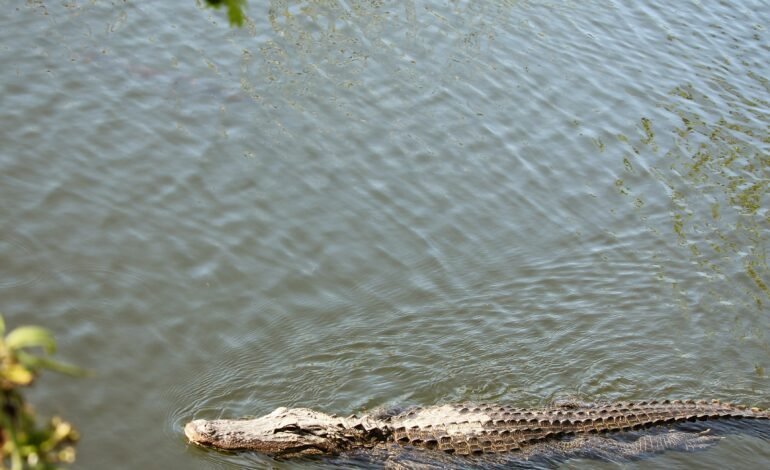Photo of Blue Hound in Unsplash
On Tuesday, July 1, President Donald Trump and Governor Ron DeSantis inaugurated the "Alligator Alcatraz" migrant detention camp in the Florida Everglades. Located on a former airport, the facility will have an initial capacity of 3,000 people and an estimated annual cost of $450 million.
The swampy environment of the Everglades, home to alligators, panthers, and snakes, will be used as a natural security measure. Although Trump hailed it as a "national model," environmental organizations and indigenous communities have already filed lawsuits alleging its ecological impact and the failure to comply with environmental laws.
The bill seeks to speed up mass deportations and relieve pressure on border crossings.
To elaborate on the project, this detention center is located in the Big Cypress National Preserve, the heart of the Everglades. During a recent public meeting, environmental advocates, legal experts, and citizens expressed their opposition to the project, claiming it threatens decades of ecological restoration efforts and violates federal environmental laws.
Lack of environmental assessment and request for urgent measures
At a press conference organized by Friends of the Everglades, Paul Schwiep, a spokesperson for the plaintiffs, denounced the lack of a comprehensive environmental analysis and announced that they have requested an expedited court hearing, as well as a temporary restraining order to halt construction while the legally required study is conducted. He claimed that state authorities are ignoring current environmental regulations.
Threats to endangered species and the Everglades ecosystem
Elise Bennett, a conservation biologist at the Center for Biological Diversity, emphasized the direct risks facing endangered species, such as the Florida panther and the Florida hooded bat, as well as various wading birds and wetland ecosystems that are especially sensitive to pollutants. She also warned about the negative effects of light and noise pollution, which can significantly alter wildlife behavior patterns.
A project without transparency and with high economic cost
Elisa emphasized that taxpayers have invested billions of dollars in Everglades restoration, considered the largest ecosystem restoration project in the world. She questioned the lack of transparency surrounding the new project, which she said lacks adequate public information and detailed environmental impact studies.
For her part, Eve Samples, executive director of Friends of the Everglades, called the project "one of the worst ideas in the United States" and harshly criticized Governor Ron DeSantis for, she said, abandoning his commitment to protecting the ecosystem. She also warned that the facility's operation could cost more than $400 million annually, a figure that has raised concerns among both conservative and progressive groups.
Citizen unity and future actions
During the event, speakers emphasized that opposition to the detention center extends beyond environmental groups and includes hunters, local residents, and people of diverse political ideologies. The potential expansion of the site, the existence of permanent structures, and the state's alleged intent to evade the requirements of the National Environmental Policy Act (NEPA) through emergency powers were also discussed.
In closing, participants reaffirmed their commitment to defending the Everglades as an essential part of Florida's identity and environmental health.
For more stories like this, follow More Latin.
Sources:

